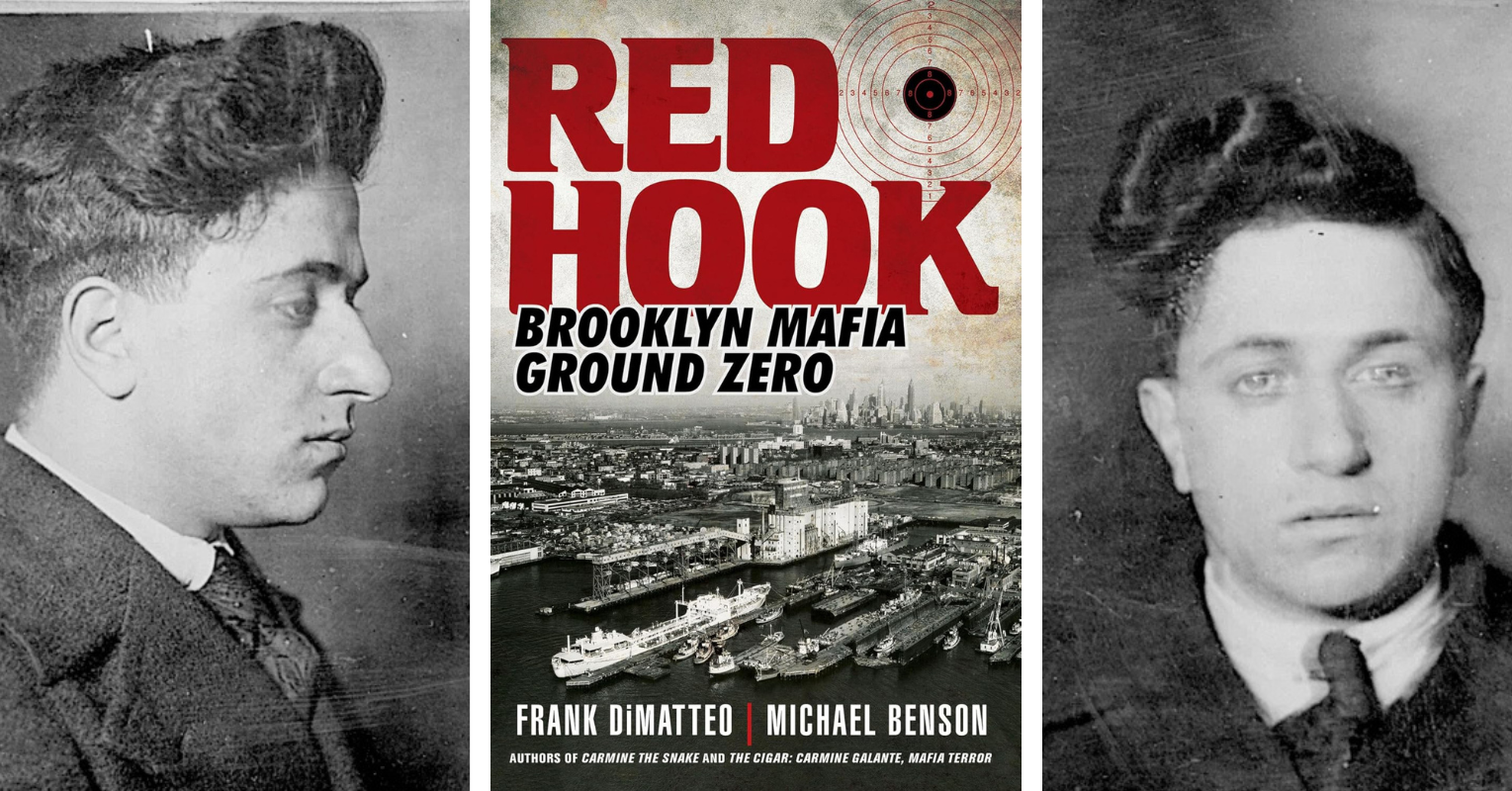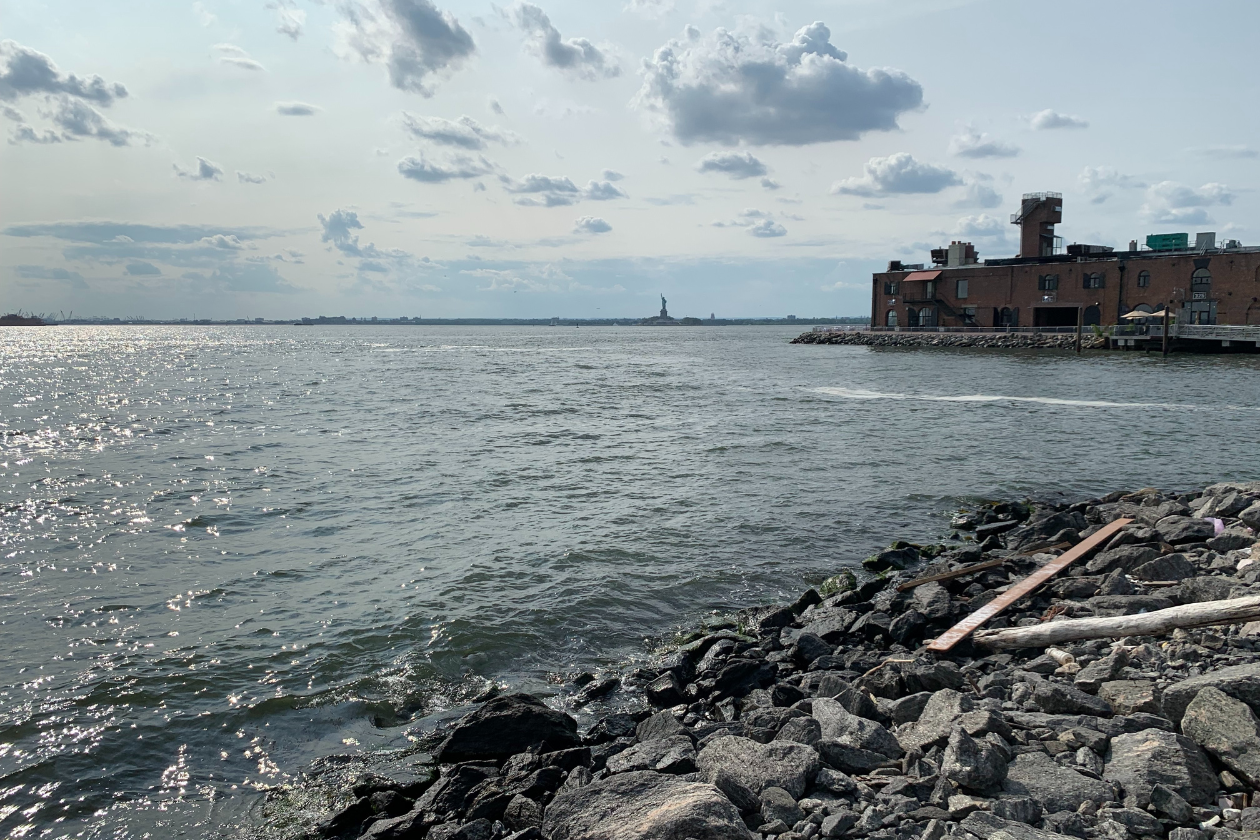Last Chance to Catch NYC's Holiday Notalgia Train
We met the voices of the NYC subway on our nostalgia ride this weekend!

A true-crime writer and a Mafia survivor take readers on a tour of early 20th-century Brooklyn!

Lifelong Brooklynite Frank Dimatteo had a front-row seat to some of the most violent times in Red Hook's history. Growing up in the 1960s and 1970s, DiMatteo had relatives working for the Gallo crime family, and he too eventually got in on the action. But Red Hook's mafia history starts way before the Gallos.
In their latest book, Red Hook: Brooklyn Mafia Ground Zero, DiMatteo and true-crime writer Michael Benson follow the evolution of Red Hook's underbelly from colonial times to the present day, sharing stories of notorious gangsters like Al Capone, feuds between members of the White Hand (the Irish Mob) and the Black Hand (Italian mob), and the geographic and psychological reasons why the isolated Brooklyn neighborhood was a hotbed for illicit activity. Below, the authors share an excerpt from the new book.
Dive into the crime-riddled history of Red Hook on December 12th when Benson and DiMatteo join Untapped New York Members for a free virtual talk!

Thursday, December 12th at 12PM ET - Free to Untapped New York Members at the Fan tier or higher
If you took a stroll around Red Hook in 1901, things would look pretty run down, decayed…but sprouting all around from the decay was life. The docks themselves were beehives of activity during working hours, a well-oiled machine that unloaded imported goods of all sorts from ships from faraway places, unloaded grains and natural resources barges from Upstate New York, the Midwest, and Canada off the Erie Canal, loading up ships headed overseas.
But you didn’t have to get too far away from the waterfront before things slowed way down. Let’s start at the foot of Van Brunt, at the edge of the Erie Basin, and work our way at pedestrian pace northeast.
To stroll up Van Brunt Street at the turn of the twentieth century—in the daytime, anyway—was to see a neighborhood that seemingly thrived on its own grit. At Van Brunt and Beard streets, there was a bar called The Suds Palace, more corrugated tin than palatial, operated by one Jim Kehoe, who used his platform behind the bar to successfully run for state senator.
Across the street, was a junk shop run by Mike Cowhey, front window display who usually sat out front smoking tobacco out of a gnarly pipe that looked like he whittled it himself.
One block north, at Van Brunt and Van Dyke streets there was another saloon, western style, with swinging doors that a kid could look under. Moms sometimes sent the kids to fetch Dad if he was needed at home. If the bartender, a man-mountain named Billy Struck, caught children with their heads under the door looking for their drunken dads, he’d run out and squirt them with the seltzer bottle.
Playing hooky was common, but there was hell to pay if you were spotted by self- appointed truant officer Paul Steeley. He’d drag you to school by your ear.
Another block up, at Partition Street (now Coffey), Otto Grumm sold “Ott’s Cough Remedy” out of his drug store. Ott had plenty of repeat customers on account of his remedy was mostly codeine. Plus, there were a lot of persistent coughs, due to universal tobacco use, smokey, sooty air, and an unusually high tuberculosis rate, evidence that Red Hook to some extent remained a swamp. (Diptheria was also a problem. As late as the 1930s, there were drives in Red Hook to immunize babies against the bacterial infection.)
The mortician was at Dikeman and Van Brunt. He was Myles McKeon, and when he didn’t have a fresh cadaver on his hands, he would be out on the sidewalk loudly talking baseball with Old Man Demars who sold denim trousers on the opposite corner.
And there was plenty of baseball to talk about. Brooklyn’s pro teams played at
Washington Park, which was from 1883-97 on the east side of Fourth Avenue between Third and Fifth Streets, and on the east side of the avenue between First and Third Streets from 1898 until 1913, both locations within easy walking distance from Red Hook. Ebbet’s Field, on the other hand, would be built way on the other side of Prospect Park in a section known at the time as Pigtown because of the many pig farms there.
Walk further up Van Brunt, past Wolcott and Sullivan, to King Street, and you might run into Dr. Newman, black bag in hand, on his way to make a house call.

For penny candy you went to Fred Winkleman’s on the corner there. Sweets really cost a penny apiece, and sometimes Winkleman featured taffy he’d pulled himself right there in the shop.
At Van Brunt and Tremont Street (now known as Visitation Place), Tom Archer was the tobacconist, with about seventy-five percent of his business in cigars.
Cattycorner from the smoke shop, the diner was run by Pete Carroll, who spoke a weird, butchered English. Teenagers worked as waitstaff and the deal was, according to Carroll, “I’ll give you seven dollars a week and I’ll ate you or I’ll give you ten dollars a week and you ate yourself.”
Another block up at Verona Street you saw the blacksmith and the butcher. The butcher was Charlie Thornley, where you could see a red hook of a different sort. Upon those bloody hooks hung skinned carcasses, bovine and porcine, skinned and awaiting the expert strokes of his razor-sharp knife.
Turning back now, and heading southwest, we recall the day a man full of rum jumped from a third-floor window on Coffey Street, attempting to commit suicide. But it wasn’t his time. He managed to hit every clothesline on the way down, thump, thump, thump, in easy stages. He landed in a hammock and walked without a limp to the waiting ambulance.

Thursday, December 12th at 12PM ET - Free to Untapped New York Members at the Fan tier or higher
Subscribe to our newsletter